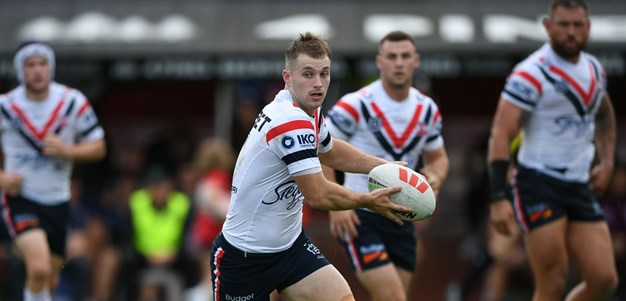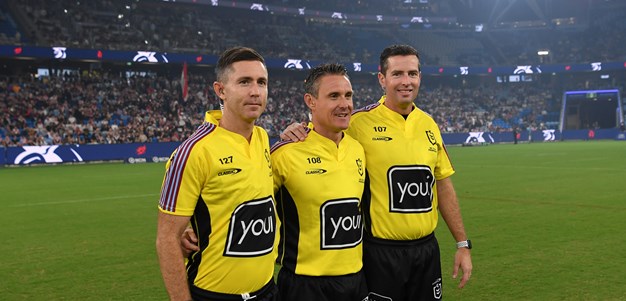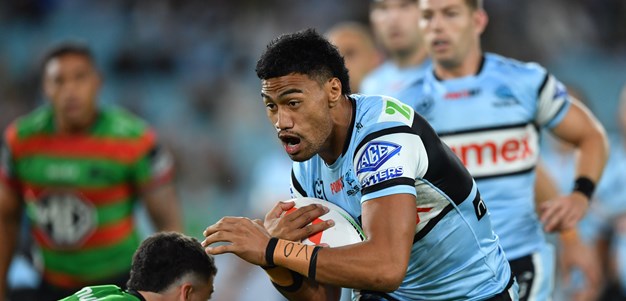It’s fair to say that this week rugby league hasn’t spent much time in the headlines for the right reasons.
It all started last Friday.
On the eve of the ANZAC Test, it was alleged that Sydney Roosters player Shaun Kenny-Dowall had been caught in possession of cocaine at a Sydney nightclub. Dowall has since been stood down by the Roosters pending investigation, and the Newcastle Knights are re-considering their offer of a three year contract beginning next year.
Next, New Zealand captain Jesse Bromwich and Gold Coast Titans co-captain Kevin Proctor were allegedly caught on CCTV footage taking illicit drugs in the early hours of Saturday morning following the Kiwis’ loss to the Kangaroos in Canberra on Friday night. Both men have been stood down from the New Zealand Rugby League World Cup team. Additionally, Jesse has been stood down for two games and has been removed from the Storm leadership group and Kevin has been stripped of his co-captaincy at the Titans, fined $20,000 and been banned for four games.
The next piece of news was that Cronulla Sharks CEO Damien Keogh had been stood down after police charged him with drug possession in Woolloomooloo on Friday night.
Then finally, 20 year old Jesse Savage who plays in the Cronulla Sharks National Youth Competition squad was allegedly caught with 1.4 grams of white powder in Cronulla on Sunday morning and has since been stood down from all playing commitments until further notice.
Whenever an issue like this rears its ugly head, I always get asked the same question – ‘how can you love a game like rugby league?’
This question comes from a place that assumes that just because rugby league will reflect the issues prevalent in our society like drug use, domestic violence, gambling and alcoholism that rugby league players have no respect for themselves, women or the wider community and don’t know how to behave. It also comes from a place which assumes that the behaviour of the few reflects the behaviour of the majority.
Both these assumptions are wrong.
I always enjoy people questioning my love of rugby league, because it gives me an opportunity to try and change their mind.
It gives me the chance to talk about the work done in the NRL Community space - like the ‘Voice Against Violence’ program, the ‘School to Work’ program, the ‘State of Mind’ program or the ‘In League in Harmony’ program. I can draw their attention to the strong relationships that the NRL has with key and respected organisations in our community like the Full Stop Foundation, Our Watch, the Black Dog Institute, Lifeline, Headspace and RECOGNISE.
I can also talk about diversity and educate people around me about the increasing and varied roles that women continue to play in rugby league. Think of Cathy Harris who sits on the Australian Rugby League Commission, Canterbury Bulldogs CEO Raelene Castle, Gold Coast Titans chairperson Rebecca Frizelle, NSW Dally M Female Player of the year Kezie Apps, referee Kasey Badger or Yvonne Sampson, Lara Pitt and Hannah Hollis who contribute significantly to a diverse Australian media landscape.
As people who love the game, we have a responsibility to champion it. As a rugby league fan, you have an important role and the opportunity to put your hand up to be an advocate for the game.
This doesn’t mean that we can’t acknowledge the problems in our game or highlight when it can be better. It’s also important that we do this. Rugby league is not perfect and I continue to see progress being made in the player education space and players being forced to recognise that their actions will have consequences.
As a fan, I encourage you to take every opportunity to tell the people around you about the positive work the NRL is doing to make a difference in our communities and the way it is using its voice and influence to drive real change on issues that really matter.
This week, rather than focusing on negative headlines, you have an opportunity to share a different kind of story.
Round 10 is Indigenous Round and it’s the first time in the round’s history that each of the 16 NRL clubs will be wearing an Indigenous inspired jersey.
In a year where five Indigenous players have already made their debut including Brian Kelly, Braidon Burns and Gideon Gela-Mosby and 9% of grassroots players, 10% of coaches, 12% of players and 4.3% of NRL employees are Indigenous it is an important opportunity for the game to celebrate the contributions that Indigenous players continue to make to our game and recognise the oldest culture in the world.
Each fixture will feature cultural performances and a Welcome to Country ceremony will precede each game.
I’ve also enjoyed seeing plenty of stories shared about the Indigenous players that represent our clubs each week.
One of my favourites was hearing Cody Walker talk with such pride about the South Sydney Rabbitohs Indigenous jersey which his uncle Joe Walker designed. Dylan is represented on the jersey with the Goanna, which is his totem (a natural object, plant or animal that a member of a clan or family adopt as their spiritual emblem). The jersey also features Dylan’s Indigenous teammates linking arms into the rabbit which is meant to symbolise unity – something the Rabbitohs will need to play with this weekend if they are to defeat the Wests Tigers.
Ryan James is another player that has shone this week.
This weekend, Ryan will wear specially designed boots which geographically represent the forces of nature which form the natural borders around the Bundjalung people of northern New South Wales, which Ryan is a descendant of.
During the earlier part of his career, Ryan was positively influenced and mentored by players like Preston Campbell and Scott Prince and hopes to carry forward that positive example and make a difference in Indigenous communities.
He spoke to NRL.com's Tony Webeck earlier this week about an initiative he is championing at the moment to make it easier for young Indigenous players to move into NRL clubs and has considered the idea of opening a share house for Indigenous boys to help them feel more connected to each other.
That’s only two stories – there are countless others.
As we head into Indigenous Round this weekend I encourage you all to take the next step and become an advocate for our game. There are so many positive stories out there and I truly think they are worth sharing.




